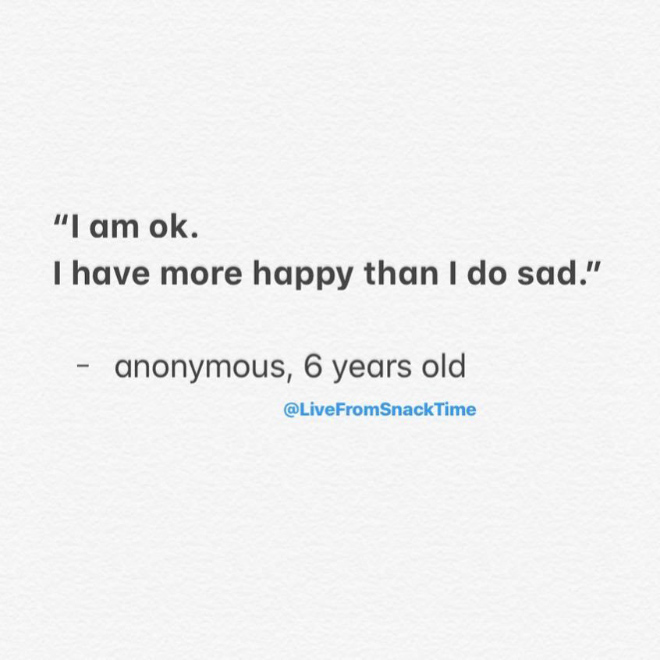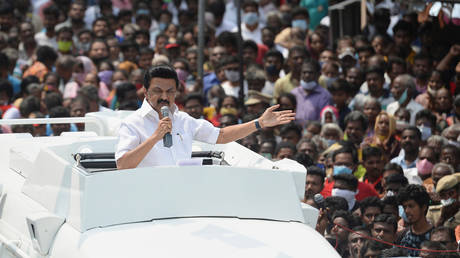Colder weather is settling in around much of the globe and after a year and a half of managing a global pandemic, energy markets are more complicated than ever. The U.S. petroleum inventory is at its lowest level since 2015, the UK is experiencing a severe energy crisis, Russia continues to push Germany on the Nordstream II pipeline and winter has already come to China, which has experienced weeks of rolling blackouts. What does all of this mean as both state and non-state cyber actors continue to take aim at energy infrastructure?
The Cipher Brief spoke with energy expert Norm Roule, a top adviser on energy issues, to get a sense of where we’re headed.
Norman T. Roule served for 34-years in the Central Intelligence Agency, managing numerous programs relating to Iran and the Middle East. He served as the National Intelligence Manager for Iran (NIM-I) at the Office of the Director of National Intelligence from November 2008 until September 2017. As NIM-I, he was the principal Intelligence Community (IC) official responsible for overseeing all aspects of national intelligence policy and activities related to Iran, to include IC engagement on Iran issues with senior policy makers in the National Security Council and the Department of State.
The Cipher Brief: Give us a brief snapshot of the global energy market today and what you think we will see in the coming months.
Roule: The energy market is working through what will hopefully be the final phase of a perfect storm of market distortions ignited by the pandemic and influenced by shifts in capital markets and climate change initiatives. I say the final phase because most countries are returning to growth and pre-pandemic energy consumption. Most of the drivers of this final phase will likely push prices upward in the near term. A few involve long-known issues that are now coming into play. A few remain unpredictable. Ancillary industries that rely on oil, gas, or distillates as significant feedstocks will either raise prices or shift production to areas with less exposure to hydrocarbons. In short, in the coming weeks, consumers should expend to not only pay more at the gas pump but at the supermarket and mall. We are likely to see relief in the Spring as the pandemic and supply chain distortions wane, seasonal demands on oil and gas pass, and energy producers ramp up operations to exploit high prices. China’s economy also shows signs of slowing, and financial packages meant to jump-start global economies will run their course.
The Cipher Brief: Energy markets seem more complicated than ever. What are the primary variables at play?
Roule: Global oil consumption is now back to 100 million barrels per day, a statistic last seen when the pandemic hit. Production is up, but the most crucial trend in recent months has been the deep draw on the glut of oil stocks during the pandemic. Producers – especially OPEC – have constrained production to reflect their cautious approach to market stability and their desire to reduce the stockpiles accumulated during the pandemic. As a result, stocks are now lower than before the pandemic. If you exclude the strategic petroleum reserve, the U.S. petroleum inventory is at a level not seen since 2014-2015. Stockpiles at Cushing are at a similar level. U.S. gasoline stocks are around five million barrels below pre-pandemic seasonal averages.
U.S. producers have consolidated, and the industry prioritizes return on equity over expansion, particularly in a political environment that is increasingly hostile to hydrocarbon production. As a result, U.S. oil production is still about 1.7 million barrels a day below pre-pandemic levels. Add to this the push to reduce carbon emissions, gas supply cuts, and some supply chain distortions, and you get a surge in gas prices and a need for oil (and coal) to replace gas in electricity production, as we see in China.
The Cipher Brief: The administration seems to be blaming OPEC plus for high oil prices. What’s happening within the cartel? How does the cartel see the current energy market?
Roule: OPEC’s role in oil markets remains deeply significant. The cartel produces 40 percent of the world’s oil, but 60 percent of the world’s total traded exports. That inevitably gives it an important voice. It is also clear that OPEC+ leaders remain confident in their strategy to maintain market stability and benefit from prices that are not so high that they ignite demand destruction. OPEC discipline during this turbulent period has been quite good, especially given that it is far from a monolith of views and capabilities. For example, the UAE would likely support additional production. Moscow makes positive noises about its willingness to increase production, but it follows Riyadh’s lead for the revenue and political advantage it derives from the current market.
Riyadh remains the architect of OPEC’s approach. Kuwait and Baghdad seem comfortable with this strategy. Production restraint is made easier because about half of OPEC’s members reportedly are unable to meet production quotas due to technical problems, mismanagement, or a lack of capital investment. This list includes Angola, Gabon, Equatorial Guinea, Nigeria, Libya, and Venezuela.
OPEC decision-making likely rests on a handful of variables, some predictable, others not. The cartel has done well in its assessments of global recovery and pandemic impact. But questions remain on aviation recovery. Likewise, even their best analysts have a tough time predicting the impact of speculators, weather trends, and the future of sanctions on Iran and Venezuela. Riyadh and Abu Dhabi will do what they can to avoid the financial and political consequences of inflation and any energy-instigated recession.
The strains in US-Saudi relations appear to have undermined Riyadh’s sympathy for Washington’s challenges. The Saudis are tired of being a political target within the U.S. They also seem to believe that while the U.S. touts itself as being interested in only renewable energy sources, it has no problem criticizing the Kingdom when high gas prices become a political issue. Last, we should recall that it was only in May 2020 that a group of Republican Senators publicly called on Saudi Arabia, demanding that it stabilize the energy market. From Riyadh’s perspective, it has done precisely that.
The Cipher Brief: Are the Gulf oil producers serious about renewable energy?
Roule: Absolutely. Regional leaders certainly understand the consequences of climate change for their people. In recent years, the region has experienced some of the highest temperatures on record, causing concern that, if unchecked, the trend could make portions of the Middle East unlivable.
But their approach is different from ours and as we all know, Gulf economies rely heavily on revenues from hydrocarbons. To varying degrees, all the Gulf states are trying to diversify their economies. But they also want to avoid a situation in which they are stuck with stranded strategic assets. In the West, our climate narrative tends to focus on ending the use of hydrocarbons. As with Norway, Gulf producers claim that they will use the resources from their oil revenues to fund the transition to a new energy economy.
Join The Cipher Brief for Members Only expert conversations on issues related to economic and global security. Become a member for just $10 a month and then join us for a Members Only Brief with Norm Roule on Thursday, November 18 at 1:30p. Members receive invitations via email.
Their focus tends to be a balance between a reduction of emissions and reduction of hydrocarbon use. Recent weeks have seen multiple significant events in the Gulf in which they tried to highlight their decision to expend resources and political bandwidth on green technologies, hydrogen production, and carbon capture solutions. We will also see increasing efforts to plant trees and to rely on natural gas instead of oil for power generation. They also claim they will try to end gas flaring and reduce methane emissions. I don’t think these efforts will satisfy Western environmental activists who demand an end to oil use, but the trend is undeniable.
The Cipher Brief: What is happening with U.S. oil and gas producers? How are they responding to changing conditions?
Roule: Much has changed in the last two years. First, the sector underwent significant consolidation. The larger publicly-held companies must satisfy investors and financial institutions with a steady return on equity over the growth. Washington has cooled on its support for the industry. The decision to kill the Keystone Pipeline and limit drilling on federal property has contributed to industry reluctance on expansion. Last, some investors are pushing for companies to devote more attention to renewable energy sources. During the pandemic, this reduced capital investment to about half of average expenditure, thus producing our current limited production capacity. U.S. rig count has significantly improved over the past year, but not on a scale that would return U.S. production to pre-pandemic levels. In the near term, smaller privately-held firms are likely to spend the resources to expand production with public firms following once they get a sense of what 2022 will bring.
The results speak for themselves. At the beginning of the pandemic, the U.S. produced around 12.8 million barrels of oil per day (BPD). By May 2020, production declined to 9.7 million BPD, and with recovery is now approximately 11.3 million BPD. We are once again a net importer, bringing in about 1.3 million BPD in October.
We have seen a broader recovery in gas production, particularly in Texas. But a lack of production, low stockpiles, and unprecedented demand from abroad means consumers will face high bills if winter is severe or the risk of short supplies. Beyond heating, gas-fired power plants produce more than 50% of New England’s electricity, for example, so that any price spike will play out elsewhere in the economy.
The Cipher Brief: Is there a policy response to this situation?
Roule: I think policymakers globally are praying for a mild winter. But beyond this, policy options are few in the near term. A release from the strategic petroleum reserve (SPR) is conceivable. Still, we should remember the SPR was established for national emergencies and not a piggy bank to manage gas prices in an election year. Domestic producers will take a while to ramp up production, but policymakers will find this tough to seek in the current political environment. The administration could ban oil and gas exports or allow Congress to pass legislation enabling the federal government to sue OPEC for its cartel activities. Either step would invite predictable and unwelcome diplomatic consequences.
Although the American public demands cheap energy, it isn’t enthusiastic about supporting the infrastructure needed to achieve this, even if the power is produced elsewhere. Let me cite a couple of recent examples:
• Maine voters just rejected the construction of a billion-dollar electric line that would have delivered Canadian hydro-power electricity to New England.
• The administration is wrestling with a decision as to whether it should shut a pipeline that carries crude oil from Canada to refineries across Wisconsin, Michigan, and the Great Lakes region.
If the administration hopes to convince OPEC members to increase production, it will improve relations with Gulf Arabs. It might be possible to convince Saudi Arabia, Kuwait, and the UAE to lift production to cover the exports of OPEC members unable to meet their production quotas. In an extreme situation, the administration might consider a temporary oil export waiver to Iran as a sign of goodwill. I think the political blowback on the latter rules it out, but the possibility is there.
The Cipher Brief: The United Kingdom seems to be working its way through a severe energy crisis. How did this happen, and what are its policymakers doing in response?
Roule: The United Kingdom’s energy challenge is significant. As with other countries, it faces consequences of production limitation and the need to turn to more climate-friendly energy sources.
A few basics. Gas produces about 40% of the country’s electricity and heats many of its homes. Once London could rely on the North Sea for its gas; it now imports about half of its gas requirements. Norway is its primary gas source, but it also depends on gas producers in the U.S., Russia, Qatar, Belgium, and the Netherlands. To add to its woes, the U.K.’s storage capacity would survive only a short period of peak consumption. In 2017, London closed a massive Rough, which accounted for 70% of the country’s entire gas storage system. At the time, London believed it could rely on the global LNG market for reliable and cheap gas. Unfortunately, most LNG tankers head to Asia, a trend that can only increase as power-hungry Asian countries wean themselves from coal and oil.
The exploitation of new energy sources in the U.K. is no less contentious than in the U.S. A good illustration of this would be the tussle over the development of the Cambo oil and gas field in the waters near Scotland. Opposed by environmentalists who cite the inevitable carbon emissions the project and its oil would produce, the project offers to ease London’s energy woes and provide around a thousand jobs. The Johnson government has yet to indicate whether it will approve the project.
London’s options are few and leaving the country reliant on market conditions means risking shortages. For this reason, it has reportedly asked Qatar to agree to become the “supplier of last resort” in case global suppliers are unavailable.
Go beyond the headlines with expert perspectives on today’s news with The Cipher Brief’s Daily Open-Source Podcast. Listen here or wherever you listen to podcasts.
The Cipher Brief: What’s the Russian angle to the energy story?
Roule: Upfront, I think we should worry whether Russia will perceive the energy crisis as offering an opportunity for aggression. What if Moscow decides its gas hold over Europe allows it to invade Ukraine without penalty? Or as a means of pushing German regulators to accelerate their approval of the Nordstream II pipeline?
Moscow insists that it is meeting contractual obligations and that its exports have increased in the past year. At the same time, there are routine reports that Russia’s gas supplies to Europe have not only not met requirements, but that gas flow reversed in the Yamal-Europe pipeline. Russia also maintains eight gas storage sites in Europe to help manage supply during high-demand periods. Gas levels at these sites are currently low. Critics claim Gazprom diverted production to Russian domestic storage and that exports in October fell to the lowest level since 2014. When pressed, Moscow explains shortages saying that it must fill its winter supply stocks and expects to send Europe additional gas this week.
But if the current energy dynamic seems to be in Russia’s interest, Moscow’s long-term prospects are dim. A global shift to renewable energy sources forces Moscow to reckon with the prospect of holding a massive oil infrastructure of little commercial value. If so, future historians may look at the recent Glasgow climate summit as a significant step in accelerating Russia’s decline, possibly a new era of aggression as it seeks to accumulate power ahead of this decline or a more competitive race for market share against OPEC members.
The Cipher Brief: What about China?
Roule: No major country has endured such energy problems in recent months as China. After weeks of rolling blackouts, China looks well on its way to solving its coal problems that partially contributed to this situation. That won’t delight environmentalists, but it should ease China’s electricity problems and ensure its citizens stay warm this winter. Winter arrived early, and Beijing is about to see its first snow of the season. China’s efforts will be put to the test in a winter that many expect to be colder than 2020.
Longer-term, China still must work through the causes of this crisis. If the global economy continues to surge demand for Chinese products, its energy requirements will grow. Weather problems cut wind production; floods shut mines. We shouldn’t be surprised if such problems continue. Inevitably, China can only meet its climate goals by shifting from coal to natural gas, raising prices for other consumers.
The Cipher Brief: Let’s shift to North Africa. Algeria recently closed a long-established pipeline that transited Morocco to deliver gas to Spain. Will this impact Europe’s already tight gas situation? What’s the story here?
Roule: Over the past year, Algerian relations with Morocco have steadily deteriorated. In addition to their traditional disagreement over the status of Western Sahara and the Polisario, Algiers criticized Morocco’s renewed ties with Israel and accused Rabat of supporting an opposition group that Algeria claims ignited forest fires. Algiers closed its airspace to Moroccan flights and accused Morocco of killing several Algerian citizens in the Sahara region.
Here’s how it touches the energy picture. On 31 October, Algiers closed an 800-mile pipeline that carried Algerian gas to Spain via Morocco and the Strait of Gibraltar. The closure cost Morocco a portion of the gas it used from the pipeline. Morocco used this gas to produce about a tenth of its electricity. Rabat claims it can use other energy sources for this purpose. However, Spain has little gas and derives a significant portion of its electricity from that which it must import. Algiers claims it will make up the loss through a secondary pipeline, but the loss of gas will compound the energy problems of Spain and Europe in general.
The Cipher Brief: Any other issues on the horizon we should consider?
Roule: A growing number of aging refineries in the West will be closed in the coming years. However, Asia is the new center for refinery construction. This expansion will draw even more crude to the region for processing with the inherent impact on local economies and global consumers.
The Cipher Brief: Last, let’s touch on wild cards. What are the grey swans that might impact markets in 2022?
Roule: With low stockpiles and supplies, the energy topography is ill-prepared to sudden shocks to its production or distribution architecture. Yet, it faces three threats that have grown in the last decade.
First, we have climate change issues. Increasingly harsh weather events have shut down large portions of the production and refinery sectors in the United States and Mexico, sometimes taking weeks to restore normal production. Second, we have the universe of cyber threats. State and non-state cyber actors routinely probe or attack every aspect of the energy industry. Last, we have new geopolitical pressures. Tensions are rising with China as well as Iran and its proxies. Three of the world’s six most significant shipping channels are in the Middle East and a fourth in Asia.
Join us for a Members Only Brief with Norm Roule on Thursday, November 18 at 1:30p. Cipher Brief Members receive invitations via email.
Read more expert-driven national security insights, perspective and analysis in The Cipher Brief
The post Winter is Coming: Global Energy Markets and the Impact on National Security appeared first on The Cipher Brief.
find more fun & mates at SoShow now !























